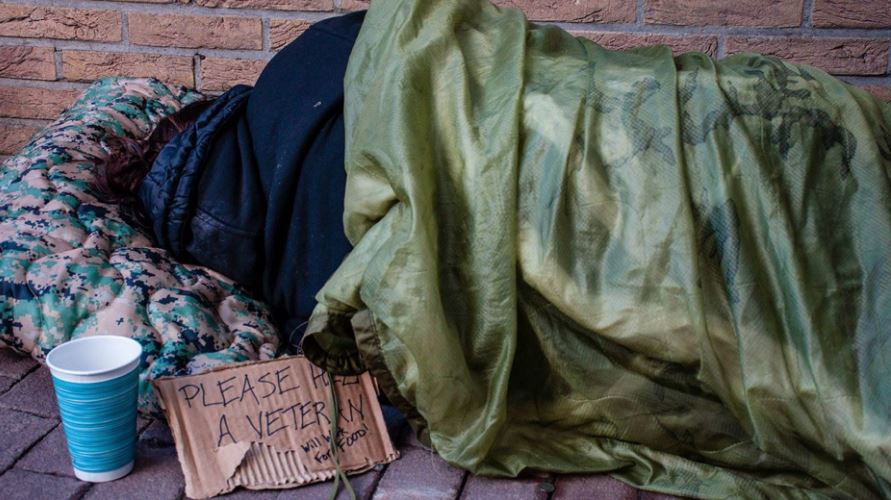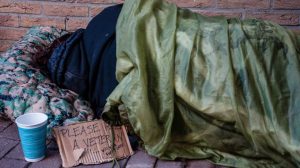Minnesota approaches goal of eradicating veteran homelessness through outreach programs


Through innovative technology and boots-on-the-ground grit, the state of Minnesota is currently approaching its longstanding goal of ending veteran homelessness.
State and federal agencies have teamed up for a unique, collaborative approach, which involved establishing the nation’s first statewide homeless registry, to combat pervasive homelessness among former U.S. service members in the state, where it frequently reaches subzero temperatures in the winter. The official count of homeless veterans now sits at just 234 for the entire state — down 53 percent since 2010, the Star-Tribune reports.
And they’re not slowing down any time soon. “We are absolutely laser-focused on getting to zero,” said Neal Loidolt, chief executive of the Minnesota Assistance Council for Veterans (MACV). “But we shouldn’t stop there: We should take what we are learning with veterans and apply it to the entire homeless population.”
The MACV has been a particularly strong force in the push to end veteran homelessness. The group created the homeless registry, which is reportedly updated in real-time, shares its information with every county in the state, and partners with more than two dozen nonprofits. Each and every veteran in the registry is paired with a case worker, who helps with all elements of the rehousing process, including enrolling veterans in benefit programs and even driving them to meet with landlords.
Volunteers for the group hit the streets weekly to speak with homeless veterans and get them enrolled on the registry, which has reportedly helped 1,700 veterans find homes since its inception. The case workers also try to connect each veteran with an employment specialist, to make sure they can keep their homes once they find them.
Marjorie Kray, who along with her veteran husband Mark had been homeless for the last three years, spoke through tears about the impact the state’s Veteran Affairs office had on their life. “It’s so overwhelming,” she said. “It’s like someone waved a magic wand and turned our lives upside down.”
Robert Kleen, a 60-year-old former U.S. Army officer, nearly faced death on the streets after being stabbed with a butcher knife and surviving a fire when the tent he was living in burned down. Last month, he moved in to a studio apartment after being connected with a social worker who got him approved for a housing voucher, and finding him a landlord who would accept it.
“For the first time in years, I can hold my head high and not live in fear — just knowing where I’m going to be from now on,” he said.